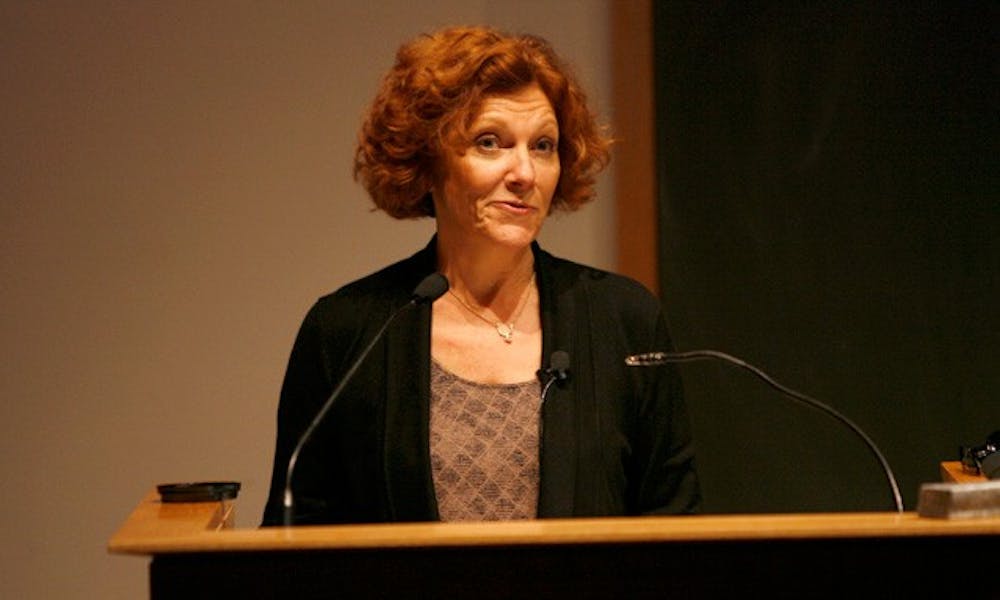Duke’s Department of Evolutionary Anthropology opened its first annual Primate Palooza Wednesday with a lecture from Claudine André, founder of Lola Ya Bonobo—the first and only sanctuary for bonobos located in the Democratic Republic of Congo.
Brian Hare, assistant professor of evolutionary anthropology, said André’s presence indicates support for the “forgotten ape.” But the bonobo, one of the four great apes, is the closest human relative, sharing 98.7 percent of its DNA with humans.
“We are very lucky to have Claudine André visit us,” Hare said. “We like to root for the underdog. We want to help an animal that hasn’t gotten its fair share of attention.”
Bonobos have been considered the forgotten ape for several different reasons, André said. Bonobos are very shy animals and as a result, are very difficult to observe.
“[Lola Ya Bonobo] is a good place for study because the bonobos have the same behavior as in the wild,” she said.
André added that bonobos could not be thoroughly studied in the past because of the former “taboos” placed on sex. Sex is an integral and frequent part of bonobo culture and scientists have to accept that aspect of bonobo life in order to observe them.
André said she began her involvement with animal conservation after the town where she lived, Kinshasa, was looted in 1991 by the Congolese military as a result of political turmoil. Along with the rest of the town, the local zoo and its animals were in bad shape. André volunteered to revive the animals in the zoo and received her first orphaned bonobo soon after, she added.
“I didn’t make a choice, my life crossed the door of the zoo,” André said. “It was a way to help my country during this period.”
The bonobos, André noted, are orphaned because of the popular trend of hunting adult bonobos for meat. Orphaned bonobos are then captured and sold as pets, which is against Congolese law.
In addition to opening Lola Ya Bonobo, André said she pressed the Congolese government to enforce its anti-bonobo hunting and trading laws to increase their protection.
At the sanctuary, orphaned bonobos are rehabilitated after their traumatic experiences of losing their families and being temporarily sold as pets, she said.
Education is also a crucial part of Lola Ya Bonobo’s mission. André said the sanctuary teaches about 30,000 Congolese children about bonobo conservation each year.
“Here, I have learned my motto: Conservation begins by education,” she said.
Duke also sends a number of students to the Congo each year to work and study at the sanctuary, said Vanessa Woods, a research scientist in evolutionary anthropology.
“[Lola Ya Bonobo] is the only place in the world we can do the research that we are interested in,” Woods said.
André said they have been working on introducing bonobos back to the wild. They recently successfully released a group of nine bonobos back into the wild and are preparing to do the same with a second group.
In the future, André said she hopes to raise enough money to purchase a nearby island and move the sanctuary there to prevent bonobo overcrowding.
“We have to worry about overpopulation because [the hunting of bonobos for meat] is never going to stop,” André said.
Junior Sandeep Prasanna said he was grateful for the opportunity to hear André speak.
“Claudine André is a hero in the primate world and it was great to see her in person and hear how she’s helping our closest relatives,” he said.
Get The Chronicle straight to your inbox
Signup for our weekly newsletter. Cancel at any time.

